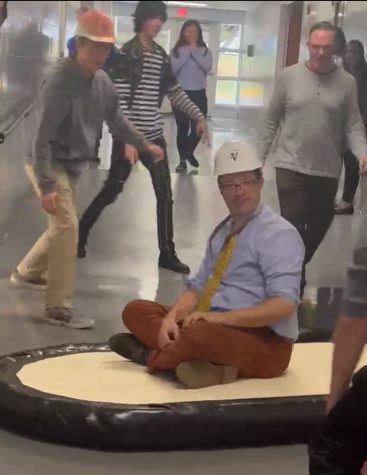The Reason for the Season
Any student at Verona High School knows that there are in fact five seasons, not four: Summer, Fall, Winter, Spring, and AP Season.
When walking the halls of VHS, it is almost impossible not to hear someone talking about Practice-Its or Albert or mock exams or one of the other, countless, classic components of AP classes. But in a small school with such a high percentage of AP class enrollment, it is difficult not to ask ourselves the simple yet daunting question of “why? Why do our students choose to participate so frequently in these rigorous, college level, courses? What value do these courses have in the eyes of the students? How do these values line up with the intended values of the College Board?
Though AP classes are available to and taken by students ranging from grades 9-12, I turned to seniors who, with college applications on the forefront of their minds, are constantly thinking about college courses and what to expect in the future, to find out what AP classes mean to them.
According to the College Board Website, “AP gives students the chance to tackle college-level work while they’re still in high school and earn college credit and placement.” For some VHS seniors, AP classes to them mean just that. “I took AP classes so that colleges can see that I’m challenging myself, even though it may mean getting a lower grade. I think they are important because they do not only prepare you for college but they allow you to see areas that you like and excel in,” said senior Jessica Spinelli.
However, some of our seniors chose to take AP classes for more immediate reasons. When asked the same questions, Sarah Carlucci responded “I took AP classes for a couple reasons, one of them being that when college admissions counselors see that you’ve taken college level classes it looks good going into college. Another reason was because the weight on my GPA was better.”
Contrary to why the College Board recommends AP classes, some of our seniors are more motivated by the benefits that these courses will have on their college applications rather than because they thought the course had value for them.
Though the reasons seniors take AP Classes differs from person to person, the high enrollment numbers in AP classes at VHS from all different levels of student raise the question of whether or not our students feel like these college-level courses are really a choice, as opposed to an obligation, whether students feel forced or pressured into participating in these classes despite the possible consequences to their grades and to their stress levels. This pressure is felt especially by seniors, whose schedules are already jam-packed with a college applications to-do list.
And as to whether or not our seniors will be happy with their decision to take these classes and if they will stay true to their views on the courses by the end of the course, well, we will just have to wait for AP Season to come around.













